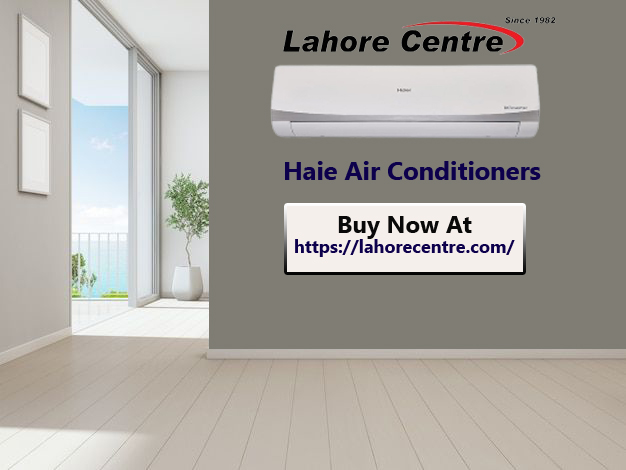Room Air Coolers and Health: What You Need to Know
Explore the health benefits and potential risks of using room air coolers. Learn how to optimize the use of evaporative coolers for better indoor air quality and comfort without compromising health. Essential tips on maintenance, climate considerations, and more.
Room Air Coolers and Health
People trying to create friendly conditions at home, especially during the warm seasons, are among many people next to the coolers. These gadgets, as a less expensive and energy-saving replacement for typical air conditioning systems, could be a solution to the question of whether it is necessary to continue traditional air conditioning systems. Though air room coolers bring many fantastic effects, their impact on health arises be an unignorable topic to consider the big picture: best usages of coolers without damaging the indoor air quality and human health.
Understanding Room Air Coolers
Room Air Coolers, commonly referred to as evaporative coolers or swamp coolers, operate on a simple principle: they transfer heat from the air to the water evaporation and the cooler air is produced. The working principle of the swamp cooler is the same fan that pulls in the outside air through the soaked pads which as the water evaporates absorbs the heat from the air, washing it. The new air is blown to all areas of the room instead.
This method of cooling is most effective in dry climates, where the addition of moisture to the air can also improve comfort. However, the performance of Room Air Coolers diminishes in humid conditions since the air already holds considerable moisture, limiting the evaporation process.
Health Benefits of Room Air Coolers
Improved Air Quality: Unlike the traditional air conditioners which may simply circulate the same air, the air coolers consist of a system that ensures that adequate fresh air is provided from outdoors. It can provide you with fresh air that is free from pollutants, allergens, and old air, which may guarantee higher quality of indoor air.
Natural Humidification: For regions with dry climates, the moisture added by Super Asia Room Cooler can be beneficial. It helps in reducing dry skin, irritation of the eyes, and respiratory discomfort caused by dry air.
Energy Efficiency and Environmental Impact: Compared to conventional air conditioners room air coolers consume significantly less electricity, leading to lower emissions of carbon dioxide and other pollutants associated with power production.
Potential Health Concerns
While such Portable air coolers have undoubtedly pros, they could cause health hazards without proper reconsideration thus needing room air coolers safety precautions to be put in place and maintained to have a healthy indoor environment.
Mold and Bacteria Growth: The constant presence of water in air coolers can lead to the growth of mold and bacteria if not cleaned and maintained properly. These microorganisms can be harmful when dispersed into the air, potentially leading to respiratory issues and allergic reactions.
Humidity Issues: In humid climates, evaporative coolers can add excessive moisture to the air, which might encourage the proliferation of dust mites, molds, and other allergens. High humidity can also make indoor environments uncomfortably muggy and can damage building materials and furnishings.
Ineffective Cooling and Discomfort: In areas with high humidity, air coolers are less effective. This can lead to insufficient cooling, forcing inhabitants to use the coolers continuously, which exacerbates humidity problems and energy consumption.
Best Practices for Using Room Air Coolers Healthily
To maximize the health benefits and minimize risks when using room air coolers, consider the following guidelines:
Regular Maintenance: Clean the water tank, filters, and pads regularly as per the manufacturer's instructions to prevent mold and bacteria buildup. Ensure that all parts of the cooler are in good working condition.
Proper Ventilation: Ensure that your space is well-ventilated. Open windows or doors periodically to allow fresh air to circulate and prevent humidity build-up.
Appropriate Sizing and Installation: Choose a cooler that is appropriately sized for the space. An oversized cooler can cause humidity levels to rise too high, while an undersized unit may be ineffective.
Monitor Humidity Levels: Use a hygrometer to keep track of the humidity levels in your room. The ideal indoor humidity should be between 30% and 50%. If humidity consistently exceeds this range, consider using a dehumidifier or switching to a different type of air conditioner.
Consider Climate Suitability: Before investing in a room air cooler, consider whether it is suitable for your local climate. In very humid areas, an evaporative cooler might not be the best choice.
The Canon Air Cooler and other room coolers that operate on air sources not only provide economical and green solutions for their users but are also appropriate for arid environments. These plants can increase indoor air oxygen and cool the surroundings, and this is a very comfortable place to stay. On the one hand, despite that using this device is secure and beneficial, it is highly desirable to take care of, ensure adequate ventilation and maintain indoor humidity levels appropriately. Accordingly, the overall understanding of both the benefits and drawbacks of room air coolers can help consumers make their cooling component choices in order to retain their comfort and health indoors.
At Lahore Centre, room air coolers are an efficient choice for beating the heat, especially suited to the local dry climate. They enhance comfort by adding moisture and improving air quality. However, proper maintenance is crucial to prevent mold and ensure the unit remains effective and health-friendly.




Comments
Post a Comment